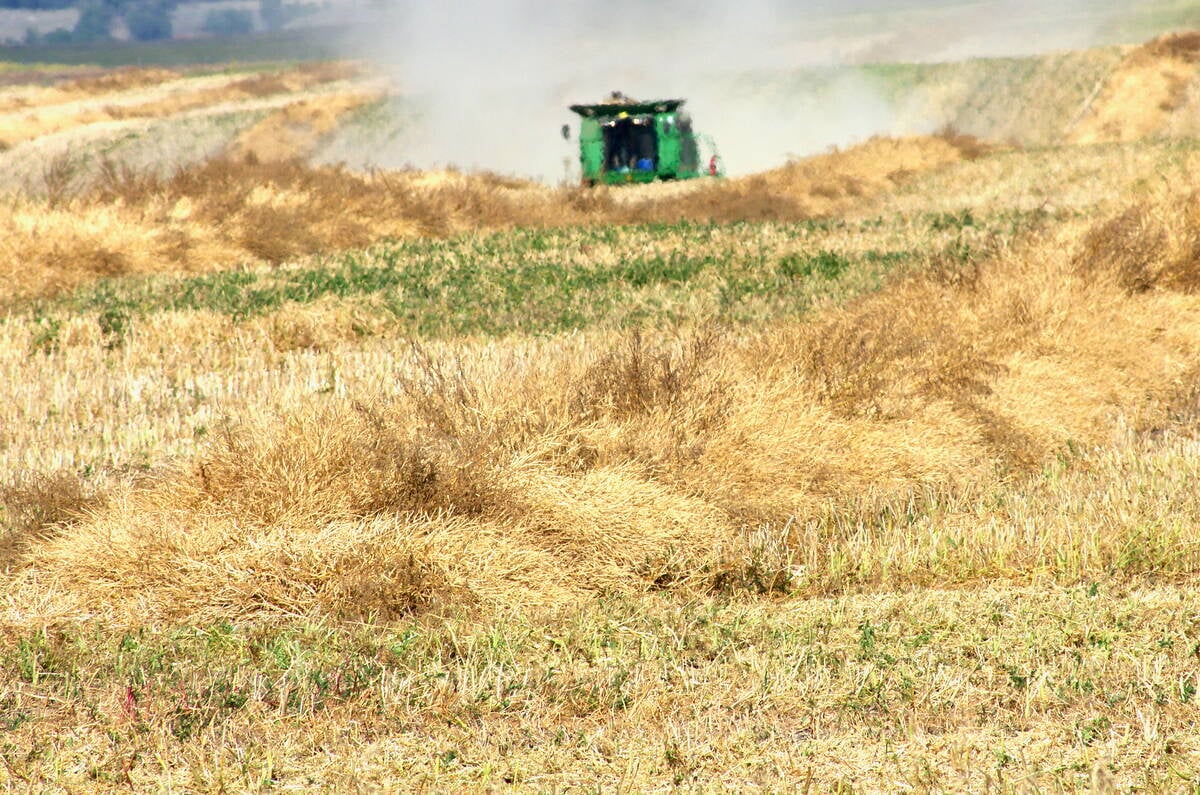If frothy bloat gets your gastric juices flowing, you can put away the Rolaids.
Ranchers can now buy an effective tool for preventing bloat in animals that have been fed alfalfa.
Rafter 8 Products is marketing a cure called Alfasure. It has similar performance to Blocare 4511, an antifoaming agent produced by a New Zealand company. Researchers raved about Blocare’s success in preventing bloat, but the product was never registered for use in Canada.
Blocare was brought into the country under a conditional release to be tested by scientists in field trials and used by a select few producers under an emergency drug use provision.
Read Also

Manitoba searches for Plan B on canola oil exports
A new report explores Manitoba’s current canola oil trade and possible alternative markets to the U.S.
While there is no similar ban on the sale of Alfasure, there are some restrictions, said Rod Sydenham, a veterinarian from Cochrane, Alta., who spoke about the product at the annual meeting of the Western Canadian Association of Bovine Practitioners.
Alfasure is made of two ingredients, both of which have been approved by Canadian regulators. But the mixture has not been approved so by law it must be sold through vets on a prescription basis, said Sydenham.
Bob Owens, president of Rafter 8 Products, had a different view on why the product requires veterinary supervision. He said it was a choice the company made because cattle can die from bloat if they receive an incorrect dose.
“If this stuff is available in every feed store without supervision, I think you can see some real problems,” said Owens.
Both men agree the product works well if administered properly.
“If the correct dosage is ingested by the animal, it is virtually 100 percent effective. Nothing in nature is 100 percent, but this is as close as you can come,” said Sydenham.
The product is administered through drinking water. For safety, producers must ensure the animals have no other source of water.
Owens recently visited an Alberta farm where 67 cow-calf pairs were grazing a field of alfalfa up to their bellies. They had been living in that potentially “deadly situation” for three weeks with no ill effects because the animals were ingesting Alfasure with their water.
Alfasure costs ranchers about 15 cents per head per day for animals under 450 kilograms and another nickel a day for animals over that weight. For a 120-day grazing season, that works out to $18-$24 per animal.
Sydenham said Rumensin is also used for bloat control but is generally thought to be less effective. It is delivered as a bolus, or a large pill, that slowly releases the medicine over 100 days. That has drawbacks.
“If you only need bloat control for 35 days you still have to pay for 100 days because you can’t get the pill back out of the animal,” said the vet.
With an effective bloat controller like Alfasure on the market, Sydenham thinks there could be more acreage seeded into alfalfa, especially with cereal prices as low as they are.
Owens said the product is also attracting interest from those interested in reducing greenhouse gas emissions.
Cows that experience better feed conversion from eating a high nutrient crop like alfalfa may emit less methane gas. Alfasure could also lead to improved land management practices because farmers can increase their stocking densities.
Owens said the Alberta farmer who has 67 cow-calf pairs grazing on pure alfalfa thinks he can feed his animals year-round on 45 acres of land.















